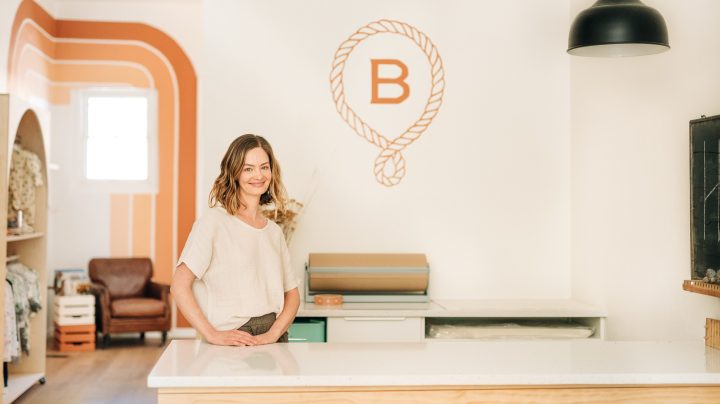
How a new shop owner is navigating the pandemic
How a new shop owner is navigating the pandemic

We first met Maris Johansson in June. She’s a first-time entrepreneur in Denver who opened a children’s clothing and toy store, Broomtail, in mid-May, just after the state lifted pandemic restrictions.
When we left off, she didn’t know how long her business would make it. But she’s surviving. Here’s what happened in September, a crucial month in her industry.
On the Tuesday morning after Labor Day, Johansson and her two kids were sitting in an armchair reading a book when her 4-year-old son, Logan, saw something out the window.
Unexpected weather
“Snowflakes!” he said.
Snow in Denver in early September. Unexpected.
“I really don’t know what to expect for today,” Johansson said. “I could see the weather driving people in [to the store], because you go to your kids’ drawers and realize that things from last winter don’t fit.”
Or the snow could keep people at home, she said. It’s hard to predict.

Broomtail had been open for almost four months as of Labor Day, and it had yet to turn a profit — not surprising for a new business, especially now. But in August, she was just $1,000 short. Maris had high hopes for September.
“Typically, you know, I’ve heard that September is the biggest month for retailers in children’s apparel, even bigger than some of the holiday months,” she said.
But this is not a typical year.
A weird and lonely summer
It was a weird, lonely summer. Her sales fell in July, and the restaurant next door shut down.
“The owner would stop by and bring me coffee or we’d chitchat about things going on in the neighborhood and business. And even if we weren’t talking, I could still hear them next door and hear people coming in and out, so you just felt like you weren’t totally in it alone,” Johansson said.
And then she was.
These days, Johansson finds herself dropping off packages at the UPS Store a lot. Her online sales are growing.

She started offering free shipping on orders over $75 — she kind of felt like she had to. It gets expensive, so she sometimes bypasses professional shipping. “If it’s in Denver, I always check the route. If it’s on my way home or into the shop, I will drop it off myself,” she said.
Business was a little up and down through September. Some days were slow, others lively. On Sept. 24, a Thursday, Johansson reported five sales in the first hour of the day — more than normal.
“I don’t know,” she said. “I think I need to stop trying to anticipate consumer behavior and just keep rolling and keep busy.”
Her first employee
Johansson also made a big decision this month. She hired her first employee, a commercial photographer named Joslyn Griffin who recently took photos of the shop. Griffin will work as a sales associate for $18 an hour, two Saturdays a month, which means Johansson can finally take a weekend off.
On Sept. 29, Johansson was getting the store ready for Griffin. She brought in some hand cream and energy bars so her new employee would feel at home.
“My bachelorette shopgirl days are over,” she said.
A few days later, Johansson looked at her numbers and saw that she made a profit for September: $1,200. She hasn’t quite figured out why her customers shop when they do, but she’ll take it. Especially as an entrepreneur who opened her first store during a pandemic.
There’s a lot happening in the world. Through it all, Marketplace is here for you.
You rely on Marketplace to break down the world’s events and tell you how it affects you in a fact-based, approachable way. We rely on your financial support to keep making that possible.
Your donation today powers the independent journalism that you rely on. For just $5/month, you can help sustain Marketplace so we can keep reporting on the things that matter to you.












